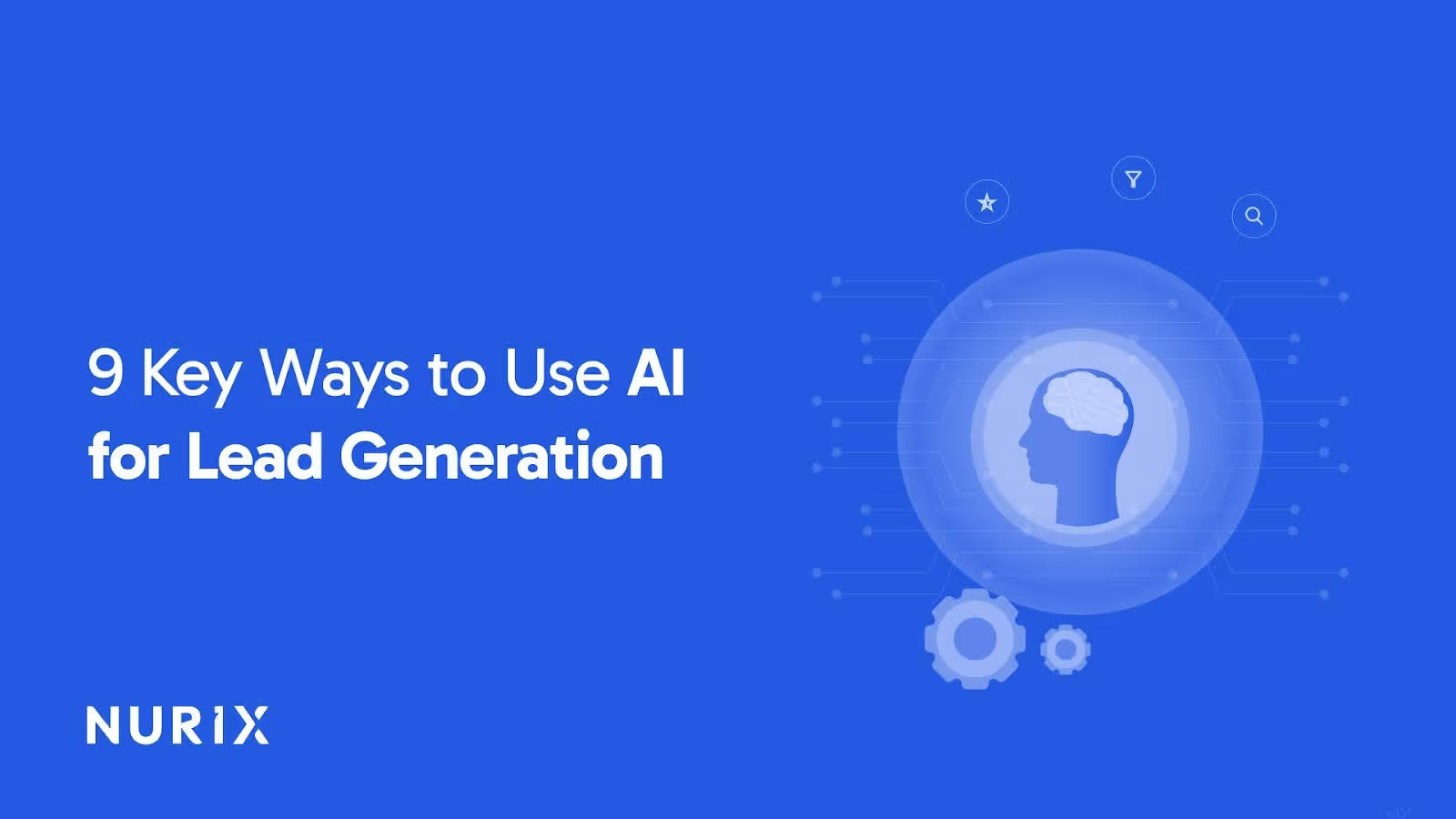The concept of a Global Capability Centre (GCC) has evolved dramatically. Once these were offshore hubs focused primarily on low-cost, back-office work like transaction processing or customer support. Today, GCCs are strategic nodes for innovation, analytics, digital transformation and global competitive advantage. (torryharris.com)
Nowhere is this more visible than in India. With over 1,700 GCCs already operating and revenues exceeding USD $60 billion, the country is rapidly positioning itself as the world’s GCC headquarters. (Zinnov)
But what does this mean for organisations and more importantly, how can Indian companies and policy-makers harness this opportunity to leapfrog, rather than just keep pace?
In a recent conversation between Mukesh Bansal (Founder, Cult .fit) and Nurix AI Co-Founder Abhishek Asawa, the discussion touched on how “agentic” AI systems can empower GCCs especially in India. Using that as a launching pad, this blog explores the GCC landscape, the India advantage, and how to unlock next-gen value.
What is a GCC and why it matters
At its core, a GCC is an offshore or near-shore facility established by a multinational organisation to deliver critical capabilities be it technology development, finance & accounting, customer operations, analytics, R&D or innovation. (Accenture)
Key features:
- It integrates with the parent organisation’s global operations, not just labours under them.
- It uses structured processes but increasingly focuses on value-addition (analytics, product engineering, digital).
- It enables scale, access to talent, innovation while controlling costs.
For companies establishing or scaling GCCs, the value proposition includes:
- Access to large skilled talent pools. (flow.db.com)
- Lower cost base compared to developed markets. (JLL)
- Time-zone arbitrage and global process optimisation.
- Platform for innovation and transformation, not just operations.
Yet regionally, India has pulled ahead.
India’s GCC advantage three pillars
- Talent depth and scale
India produces millions of STEM graduates a year, has a fluent English-speaking workforce, and deep experience in global business services. (flow.db.com) The magnitude of this talent pool means that GCCs can scale with relative ease. - Maturing ecosystem and structural readiness
Indian GCCs are no longer just cost-centres. Many have moved up the value-chain into digital, AI, product engineering and R&D labs. (Orange Business) The country already hosts over 1,900 GCCs employing nearly 1.9 million professionals. (JLL) Also, cities such as Bengaluru, Hyderabad, Pune, Chennai and Delhi NCR have robust infrastructure. (Orange Business) - Emerging innovation and transformation mindset
As Mukesh noted in the conversation, the ability to integrate AI agents and embed intelligence into workflows is now becoming a frontier. With the data and workforce already present, Indian GCCs are positioned not just to “run operations” but to “drive operations”.
Combined, these pillars position India to scale from being a global services hub to being a global intelligence hub.
Where GCCs are heading the agentic shift
Drawing from Mukesh’s perspective, one of the biggest shifts in GCCs will be the adoption of “agentic systems” — AI-driven automation that interacts, learns, acts and scales workflows.
Why this is relevant for GCCs:
- GCC tasks are often structured, repetitive, process-driven (reconciliations, claims, invoice processing, HR workflows) — ideal for automation at scale.
- GCCs are built on large volumes of past data — a key ingredient for training AI systems.
- The aim: shift humans to higher-value tasks (analysis, strategy, innovation) while agents manage the routine.
Mukesh estimated that up to 70-80% of structured GCC work could be handled by agentic systems within the next 3-4 years. This is not about replacing humans, but redefining roles.
For India, this is a massive opportunity: from simply executing global processes to designing, deploying, and managing the automation engines that power them.
How India can leverage this moment — action roadmap
Here’s how Indian companies, GCCs and policy-makers can capture this transformation:
1. Build differentiated agentic capabilities
Rather than “just another shared service centre”, Indian GCCs must specialize in automated workflows, AI-agent orchestration, analytics and decisioning. Companies should develop “agents + humans” work-models.
This means investing in:
- Data infrastructure and model training pipelines
- Integration of AI agents with enterprise systems (ERP, CRM, HRMS).
- Governance, audit, compliance frameworks for agents (reliability, bias, transparency).
2. Move up the value chain by leading global workflows
GCCs should aim to not just “deliver” but “lead”. That means:
- Hosting innovation labs that create next-gen automation platforms.
- Taking ownership of global value chains rather than just regional ones.
- Deploying AI-driven research, real-time insights and dynamic decision-making rather than static reporting.
This vision connects directly with what Mukesh pointed out — enabling real-time two-way conversation and insight loops. Indian GCCs can become the nerve centre for this globally.
3. Develop human + agent workforce hybrid model
In the agentic future, humans focus on the non-routine: judgement, strategy, creativity, exceptions. Agents handle the structured.
Indian GCCs need to reskill their workforce accordingly:
- Upskill existing teams in AI-agent orchestration, prompt engineering, process design
- Hire for higher-order skills (analytics, product, domain expertise) while phasing routine work into automation.
- Reimagine roles so that talent becomes “agent supervisors” or “automation architects” rather than purely process executors.
4. Leverage tier-2/3 cities and new locations
While Bangalore and Hyderabad remain anchor hubs, growth is moving into tier-2/3 cities (Jaipur, Kochi, Chandigarh, etc) — which offer lower cost, untapped talent and easier scale. (Orange Business) These cities can be the staging ground for next-gen GCCs built around automation and AI rather than legacy models.
5. Policy and ecosystem enablers
The Indian government and state governments must continue to support:
- Incentives for GCCs that focus on R&D, automation and global leadership.
- Data infrastructure, digital skilling programmes and AI-readiness initiatives.
- Ecosystem support (startups, accelerators, co-innovation hubs) that enable GCCs to collaborate with emerging innovation.
What this means for enterprises and Indian economy
For global enterprises with GCCs in India:
- The value equation shifts from cost arbitrage to talent + automation arbitrage
- India can deliver not just operations, but intelligent operations — global process leadership, analytics, outcomes.
- GCCs become platforms of innovation, not just services.
For the Indian economy:
- Higher-value GCCs mean better jobs — moving up the value ladder from data entry to AI ops.
- India becomes a global hub for agentic systems — exporting not just services, but automation platforms and IP.
- Growth in tier-2/3 cities helps spread the benefits of the GCC revolution far beyond metro clusters.
Tying back to the conversation with Mukesh
In our interview, Mukesh emphasised that agentic systems are now shifting how on-ground work gets captured (“two-way communication with centre managers, trainers”) and how real-time insights get surfaced in meetings and operations. This same logic applies to GCCs: they are the right vessel for structured workflows, data-driven operations and agentic automation.
He noted how “70-80% of structured GCC work” could be automated over the next few years — which, when scaled in India, means massive transformation of what a GCC can be. The core point: the advantage isn't just in having a GCC — it's in evolving your GCC to be AI-powered, insight-driven, global-impact.
Final thoughts
India’s moment as the world’s GCC capital is well underway. But the next frontier isn’t simply more centres it’s smarter centres. GCCs that embed agentic systems, hybrid human–AI workflows, and lead global operations rather than just support them.
For Indian companies, global enterprises operating in India, and government stakeholders alike, the task is clear: invest in automation and agentic infrastructure, reimagine workforce roles, harness tier-2 talent pools, and build GCCs that don’t just execute — they innovate.
If India gets this right, the country won’t just host the world’s GCCs it will lead them.
About Nurix AI
At Nurix AI, we believe intelligent agents are the next evolution of global operating platforms. We help enterprises deploy voice and chat agents embedded within their workflows, delivering measurable business outcomes across sales, support, operations and GCCs alike.
Want to explore how your organisation’s GCC or operations can evolve into an AI-first engine? 👉 Book a demo at nurix.ai












